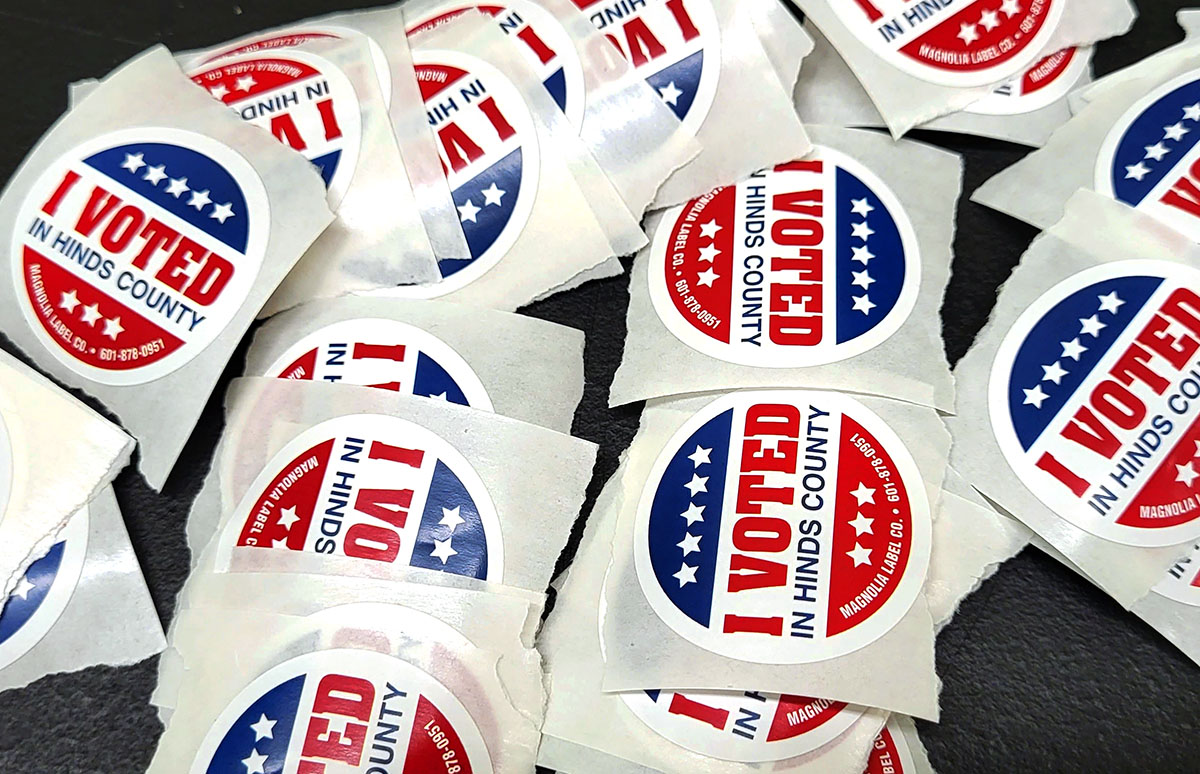A large majority of House members voted on Thursday to approve a plan that creates a process for people previously convicted of some nonviolent felony offenses to have their voting rights restored — the first of such a vote in Mississippi in more than a decade.
The House voted 96-11 to pass House Bill 1609, a bipartisan proposal to automatically restore suffrage to people convicted of nonviolent disenfranchising felonies after they’ve completed the terms of their sentence.
“It lets folks, five years after they’ve finished their sentence and satisfied all conditions, restore their rights … for folks that have cleaned their life up and gone straight,” House Speaker Jason White, R-West, told Mississippi Today. “It’s not about rewarding that, but it’s about recognizing it and placing them on that better path.”
Under the Mississippi Constitution, people convicted of any of 10 types of felonies lose their voting rights for life. Various opinions from the Mississippi Attorney General’s Office expanded the list of disenfranchising felonies to 23.
White, the first-term speaker, tasked House Constitution Committee Chairman Price Wallace, R-Mendenhall, and House Judiciary B Chairman Kevin Horan, R-Grenada, with coming up with a feasible plan to restore suffrage to some people convicted of nonviolent felons.
The House measure would allow people convicted of nonviolent offenses such as bad check writing, perjury and theft to regain their suffrage if they have not been convicted of another felony for five years after completing their sentence and paying any outstanding fines.
But people convicted of murder, arson, armed robbery, carjacking, embezzling more than $5,000, rape, statutory rape, bribery, perjury, human trafficking and voter fraud would still lose their voting rights for life.
Rep. Kabir Karriem, D-Columbus, has filed legislation for years to restore voting rights to people convicted of felony offenses, but it never gained major traction at the Capitol. Karriem called the bill’s passage a “historic moment” and thanked Republican leaders for working with him on the proposal.
“I think this bill restores hope as it makes its way through the process,” Karriem said. “It gives folks who have walked around with a scarlet letter on their chest for so long who have paid their debt to society a sense of hope.”
About 37,900 names are on the Secretary of State’s voter disenfranchisement list as of Jan. 29. The list, provided to Mississippi Today through a public records request, goes back to 1992 for felony convictions in state court.
That number, however, may not be fully accurate because no state agency tracks people once they are struck for the voter rolls. Studies commissioned by civil rights organizations in 2018 estimated between 44,000 and 50,000 Mississippians were disenfranchised.
The practice of stripping voting rights away for life from people originated in the 1890 Constitution, when white supremacist leaders intentionally tried to disenfranchise Black Mississippians or keep them out of elected office. With a justice system fully on their side, the white leaders at the time chose to include crimes they believed Black people were more likely to commit.
Rep. Cheikh Taylor, D-Starkville, who is also the current chairman of the Mississippi Democratic Party, said that while the practice has racist roots, he believes the bill’s passage debunks the notion that only Democrats and people of color are convicted felons.
“People suffer from these conditions in every village and hamlet in the state of Mississippi in all of our districts — and not just minority districts,” Taylor said.
The current process to have someone’s suffrage restored is burdensome. It requires a lawmaker to introduce a bill on an individual’s behalf, and two-thirds of lawmakers in both legislative chambers must agree. A person can also seek a gubernatorial pardon, though no executive pardon has been handed down since Gov. Haley Barbour’s final days in office in 2011.
The bill now heads to the Republican-majority Senate, where it may receive a frosty reception. The 52-member Senate on Wednesday voted 29-23 to reject a separate bill that would restore Second Amendment rights to people previously convicted of nonviolent felony offenses.
Senate Bill 2626 did not address voting rights, but it could serve as a barometer for how the Capitol’s upper chamber will address the House’s suffrage restoration proposal.
Sen. Jeremy England, R-Vancleave, said he voted against the proposal because he didn’t know enough information about the legislation, but he was open to reconsidering his vote.
“I’m sure even I have constituents who served their time … and would like to have this right restored,” England said.
Senators held the bill on a procedural motion, meaning they could debate the issue again at a later time and change their minds.
Senate Judiciary B Chairman Joey Fillingane, R-Sumrall, and Sen. Rod Hickman, D-Macon, told Mississippi Today that they plan on working with their colleagues to address their concerns and reiterate what the legislation aims to accomplish.
“I think some people just didn’t understand what the bill was trying to actually do,” Fillingane said. “If you’ve completed the terms of your sentence, it was nonviolent, you haven’t committed another crime for five years, then what’s the problem?”
READ MORE: Lawmakers consider restoring suffrage, gun rights to those convicted of some nonviolent crimes

